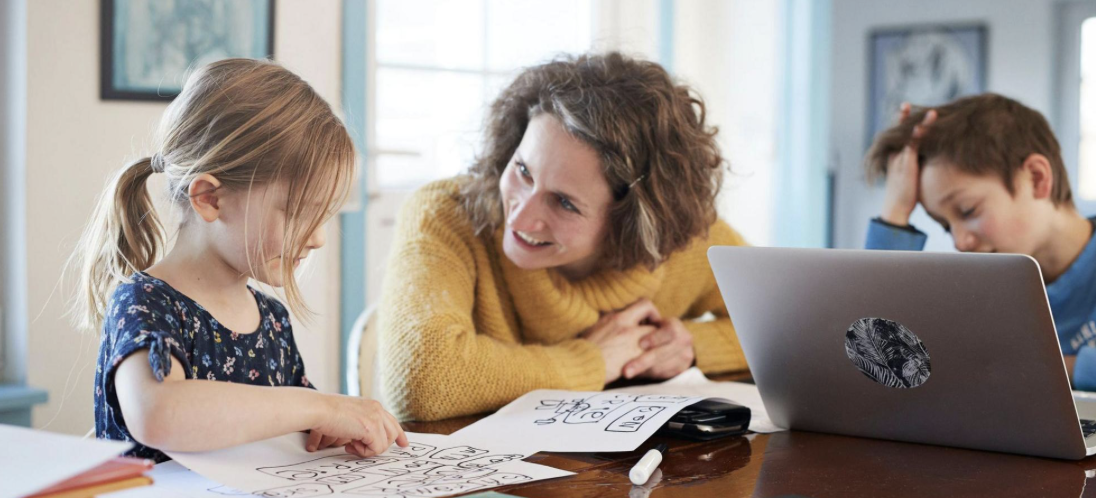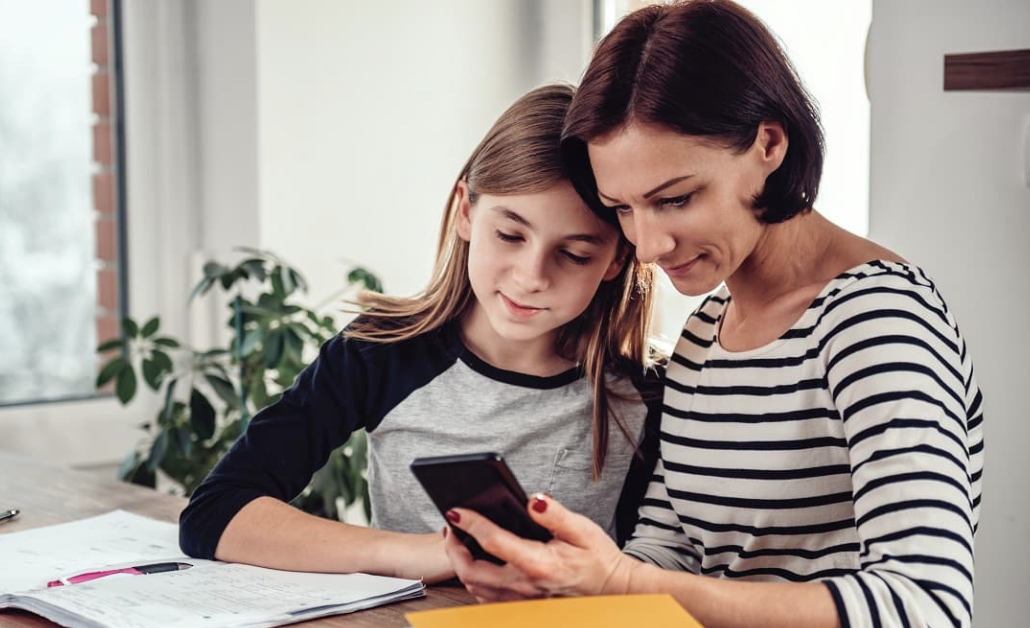Home education, or elective home education (EHE), requires parents in the UK to provide a full-time education for their children from age 5 to 16. While there’s no need to stick strictly to the National Curriculum, the education offered must still be suitable. If your child is in school and you wish to home educate, informing the school of your decision is necessary. Options for learning styles range from structured formats akin to classrooms, unstructured methods like unschooling, or hybrid approaches blending both. Support can be sourced from local councils and online communities. It's vital also to consider your child's social needs and any potential costs before embarking on this journey. Flexibility in home education allows for tailored experiences that meet individual learning preferences while fostering personal growth at a comfortable pace.

Home education, also known as elective home education (EHE), allows parents to educate their children outside of the conventional school system. In the UK, from the age of 5 until they reach school leaving age, parents are responsible for ensuring their child receives a suitable full-time education. It’s important to note that while you do not have to adhere to the National Curriculum, the education you provide must be suitable for your child’s age, ability, and aptitude. If your child is currently attending school, notifying the institution of your intention to home educate is a necessary step, and they cannot refuse your request to withdraw your child. For children with special educational needs attending a special school, you will need the local authority's permission to home educate.
There are various approaches to home education. Some families opt for structured learning, which resembles a traditional classroom environment and often follows a timetable. Others may choose unstructured learning, sometimes called 'unschooling', where education is more organic and led by the child’s interests. A hybrid approach can also be adopted, combining home education with part-time school attendance, thus providing a balance of both environments.
When it comes to curriculum choices, parents have the flexibility to either follow the National Curriculum or create a bespoke educational programme that aligns with their child’s needs and interests, as long as it meets local authority standards. Support is available from local councils, which can provide resources for home education. Additionally, online communities and local groups can be invaluable for sharing experiences and resources.
Before embarking on this journey, it’s wise to consider your motivations and how this choice may affect your family life. Engaging with your child about their feelings towards home education is crucial, as is being prepared for potential costs associated with resources and tutoring. Home-educated children can still sit for GCSEs and A levels as external candidates, though many higher education institutions may request proof of qualifications. Ensuring your child has opportunities for social interaction is also vital. Joining home education groups or participating in community activities can help facilitate this. One of the most appealing aspects of home education is the flexibility it offers, allowing you to tailor your child’s learning experience to suit their individual needs and pace.

Home education, known as elective home education (EHE), is a viable option for parents in the UK who wish to educate their children outside the traditional school system. Legally, you must ensure that your child receives a suitable education from the age of five until they reach school leaving age, typically 16 years old.
While you are not required to follow the National Curriculum, the education must be appropriate for your child's age, ability, and any special educational needs they may have. If your child is currently in a school, you must inform the school of your intention to home educate; they cannot refuse your request to withdraw your child. However, if your child has special educational needs and attends a special school, you'll need permission from your local authority to home educate.
When considering home education, you have several approaches to choose from, including structured learning, which mimics a classroom environment; unstructured learning or 'unschooling', where education is more fluid and led by the child's interests; and hybrid learning, which combines home education with part-time attendance at a school. You can decide whether to follow the National Curriculum or create your own educational framework, as long as it's deemed suitable by your local authority.
It's also crucial to engage with your local council, as they can provide support and resources for home educators. Online communities and local groups can be invaluable for sharing experiences and materials. Before embarking on this journey, reflect on your motivations, your child's feelings about learning at home, and prepare for potential costs associated with resources and tutoring. Finally, remember that home-educated children can still sit for GCSEs and A levels as external candidates, ensuring they have pathways to further education if desired.
|
Requirement |
Details |
|---|---|
|
National Curriculum |
You are not obligated to follow the National Curriculum, but must ensure suitable education. |
|
Notification |
If currently enrolled in school, notify the school of intention to home educate. |
|
Withdrawal |
The school cannot refuse your request to withdraw your child. |
|
Special Educational Needs |
Permission from local authority required if home educating a child from a special school. |
Home education in the UK can take various forms, each catering to different learning styles and family preferences. One common approach is structured learning, where parents create a timetable similar to a school day, covering subjects systematically. This method provides a clear framework and can be reassuring for both parents and children, ensuring that educational goals are met in an organised manner.
In contrast, unstructured learning, often referred to as 'unschooling', allows children to learn in a more fluid and child-led environment. This approach emphasises exploration and curiosity, enabling kids to pursue their interests and learn at their own pace. For instance, if a child shows an interest in dinosaurs, a parent might facilitate trips to museums, read books, or watch documentaries related to the topic, rather than sticking to a rigid curriculum.
Another option is hybrid learning, which combines home education with part-time attendance at a school. This can be beneficial for children who thrive in a social setting but also need the flexibility that home education provides. Families might choose to enrol their child in a couple of days at school while dedicating the rest of the week to home-based learning.
Ultimately, the chosen approach should reflect the child's needs, interests, and the family's lifestyle, allowing for a personalised educational experience.
Autonomous Learning
Structured Curriculum
Relaxed Home Education
Interest-Led Learning
Project-Based Learning
Online Learning Platforms
Hybrid Approaches
In the UK, when you decide to home educate, you have the flexibility to choose how your child will learn. You are not required to adhere to the National Curriculum, which means you can craft an educational experience that fits your child's needs and interests. Some parents opt for structured learning, closely resembling a traditional school environment, where lessons are planned out with specific subjects and timetables. For instance, you might set aside mornings for maths and English, followed by afternoons dedicated to science and arts.
On the other hand, unstructured learning, often referred to as 'unschooling', allows children to explore subjects they are passionate about without a rigid framework. This approach can lead to meaningful learning experiences; for example, a child interested in animals might spend hours researching biodiversity, visiting zoos, or volunteering at animal shelters, gaining knowledge in a practical and engaging way.
Hybrid learning is another option, where families blend home education with part-time attendance at a school. This can be beneficial for socialisation and accessing resources while still providing the benefits of personalised education at home.
Ultimately, the curriculum you choose should be suitable and effective for your child, and while you have the liberty to design it as you see fit, maintaining communication with your local authority can help ensure that your educational approach is meeting legal expectations.

Finding the right support and resources is crucial for successful home education. Local councils often provide guidance and can help connect you with other home educators in your area. Online communities, forums, and social media groups are valuable for sharing experiences and resources. For instance, platforms like Facebook have groups specifically for home educators, where you can ask questions, share lesson plans, and find local meet-ups. Additionally, educational materials can be accessed through libraries, which offer a range of resources, including books and online courses. You might also consider investing in tutoring services for subjects where you feel less confident. Remember, building a network of support can make the journey smoother and more enjoyable for both you and your child.
Before diving into home education, it's crucial to reflect on your motivations. Are you seeking to provide a more tailored learning experience, or do you have concerns about the traditional school environment? Your reasons will shape your approach and commitment. Additionally, consider the impact on your family's lifestyle. Home education can require significant time and energy, which may alter daily routines.
It's also important to discuss the idea with your child. Their feelings and preferences about learning at home can greatly influence the success of this journey. Some children may thrive in a home setting, while others might feel isolated without regular peer interaction.
Financial implications should not be overlooked. Home education can come with costs for resources, materials, and any extracurricular activities or tutoring you might choose to incorporate. Planning a budget can help you manage these expenses effectively.
Furthermore, think about the social development of your child. While learning at home offers flexibility, ensuring your child has ample opportunity for social interaction is vital. Look for local home education groups or community activities to maintain a well-rounded experience.
Lastly, embrace the flexibility that home education provides. This unique structure allows you to adapt learning to suit your child's needs, making education a more enjoyable and engaging pursuit.
Home-educated children in the UK have the opportunity to take recognised examinations such as GCSEs and A Levels as external candidates. This means that while they are not enrolled in a traditional school, they can still sit these crucial exams at various examination centres. For instance, many parents choose to register their children at local colleges or independent schools that allow external candidates to sit for these qualifications. It's important to check the specific requirements of the examination centre, as some may ask for proof of prior learning or qualifications before allowing students to register.
Parents should also be aware that while home education provides flexibility in learning, it is essential to plan for these examinations well in advance. Creating a structured study plan can help ensure that children are adequately prepared. Some families opt to use tutors or online courses to supplement learning in subjects where they feel less confident.
In terms of higher education, many universities accept home-educated students, but they often require evidence of qualifications. Therefore, it is crucial for parents to maintain records of their child's progress and achievements. This could include keeping a portfolio of work, test results, and any other relevant documentation that showcases their child's learning journey.
Additionally, there are alternative qualifications available, such as Functional Skills qualifications or vocational courses, which might align better with certain children's learning styles and career aspirations. These options can provide further pathways for future education or employment.

Social development is a crucial aspect of home education. While you may provide a rich academic environment at home, it’s vital to ensure your child engages with peers and develops social skills. One effective way to facilitate this is by joining home education groups in your local area. These groups often organise meet-ups, workshops, and various activities, offering children the chance to make friends and learn collaboratively. For example, many families participate in co-operative learning sessions where children share knowledge on subjects they are passionate about, fostering both learning and social interaction.
Additionally, considering community activities can greatly enhance your child's social experience. Enrolling them in sports clubs, art classes, or community volunteering can expose them to diverse groups and experiences, encouraging teamwork and communication. It’s essential to balance academic pursuits with these social opportunities to nurture well-rounded individuals.
Don’t underestimate the power of informal interactions as well; playdates, outings with other home-educated families, or even participating in local events can provide the social engagement your child needs. Tailoring these experiences to your child's interests can make them more enjoyable and meaningful, reinforcing the importance of social skills in everyday life.
One of the most appealing aspects of home education is the flexibility it offers. Families can create a learning environment tailored to their child's individual needs and interests. For instance, if a child struggles with a particular subject, parents can allocate more time to it, or if a child excels in a certain area, they can advance more quickly without the constraints of a traditional timetable. This adaptability allows for breaks when necessary, making education less stressful.
Additionally, home education can accommodate various learning styles. Some children thrive with structured lessons, while others benefit from a more relaxed, exploratory approach. This means that parents can choose to follow a structured curriculum one day and engage in unstructured, play-based learning the next. For example, a science experiment can be conducted in the kitchen, turning a simple cooking activity into a lesson on chemical reactions.
Moreover, the flexibility of home education enables families to incorporate life experiences into their learning. A trip to a museum, a visit to a historical site, or even a simple walk in nature can all serve as valuable educational experiences. This not only enhances learning but also strengthens family bonds as parents and children explore the world together.
Flexibility also allows families to adapt their schedule to fit their lifestyle. Whether it’s travelling during off-peak times or accommodating family commitments, home education can align with personal circumstances. This unique approach empowers parents to create a learning journey that truly reflects their child's interests and their family's values.

Tutoring services can play a significant role in home education, offering tailored support that aligns with your child's learning style. They can help reinforce subjects where your child may struggle, provide expert guidance in areas that may be outside a parent's expertise, and introduce new concepts in engaging ways. For example, if your child is keen on science but you feel less confident in delivering complex topics, a specialised tutor can step in to provide that knowledge and enthusiasm.
Beyond academic help, tutoring can also structure learning, which some families may find beneficial. This structured approach can help maintain a routine similar to school while still allowing for the flexibility that home education offers. Additionally, many tutoring services offer online options, which can be convenient and provide access to a wider range of expertise. The Degree Gap is an online tutoring agency who offers pay as you go tutoring support at GCSE and A-level.
Frequently Asked Questions
In the UK, you must ensure your child receives a suitable education, which could be at home. You should inform your local council and keep records of your child's progress and learning.
Start by assessing your child's strengths and weaknesses. Then, research different teaching methods and resources. A flexible timetable that includes a mix of subjects and activities is often effective.
Core subjects like English, maths, and science are essential. You can also include art, history, geography, and even life skills to provide a well-rounded education.
Incorporate fun activities, set achievable goals, and celebrate milestones. Consider joining homeschooling groups for support and inspiration, and try to make learning engaging and interactive.
Yes, there are many resources available including online courses, local libraries, educational websites, and community groups that can provide support and access to materials.
TL;DR Home education in the UK allows parents to educate their children outside the traditional school system, starting from age 5. Legal requirements include notifying schools when withdrawing children and ensuring a suitable education. Various approaches exist, such as structured, unstructured, and hybrid learning. Parents can choose to follow the National Curriculum or create their own. Support can come from local councils, online communities, and educational resources. Consider motivations, costs, and social development opportunities before starting. Home educated children can sit exams like GCSEs as external candidates, benefiting from the flexibility of tailoring education to their needs.